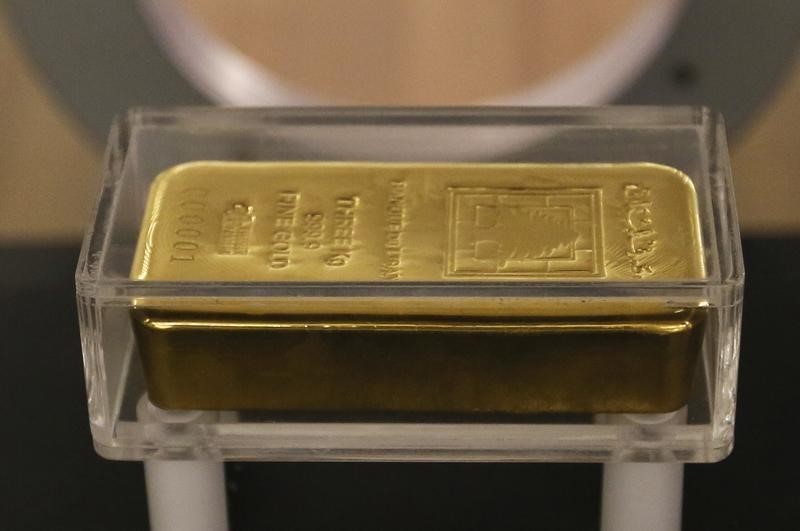By Geoffrey Smith
Investing.com -- Gold prices rose strongly in line with risk assets, rather than havens, on Wednesday, as the pressure on hot money to liquidate to cover losing positions in oil eased.
Monday and Tuesday had witnessed some forced selling as volatility in oil badly hit some short-term trading accounts. Interactive Brokers said it expected to post a loss of $88 million after many of its clients weren’t able to cover their margin calls on a day when U.S. crude futures turned negative.
By 11:35 AM ET (1535 GMT), gold futures for delivery on the Comex exchange were 2.6% higher at $1,730.80 a troy ounce, having made steady gains throughout the day. Spot gold was up 1.4% at $1,709.53 an ounce.
Silver futures also rebounded by 1.8% to $15.19 an ounce, while platinum futures underperformed, gaining only 0.1% to $759.20 an ounce.
Gold was still benefiting from Bank of America (NYSE:BAC) hanging a $3,000 price target on it earlier in the week, albeit the bank’s analysts say that could be over a year away.
In the shorter term, the narrative of financial repression gained further momentum with reports that the European Central Bank will discuss loosening its collateral rules this evening ahead of next week’s policy-making meeting, making it easier to push money out through its refinancing operations. The sight of global central banks pumping ever-larger amounts of fiat currency into markets, against ever-weaker collateral, has been a central argument for gold bulls for the last decade.
The U.S. Senate passed the latest $484 billion economic support package on Tuesday. It now goes to the House for a vote later this week.
The latest reports come a day ahead of another European Union summit whose aim is to agree on funding a common policy for getting the economy back on track. Spain, France and others have all called for greater joint borrowing, but face an uphill struggle to convince Germany, the Netherlands, Austria, Finland and others.
(Correction: the original version of this article stated the wrong date for the ECB's policy meeting.)
